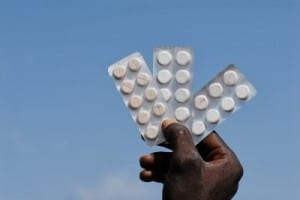by TESSEL MELLEMA
 South Africa’s intellectual property (IP) reforms were, once again, in the spotlight last week after it emerged that multinational pharmaceutical companies, led by their industry associations in South Africa (IPASA) and the United States (PhRMA), made plans to commission a strategy to thwart the national government’s proposed IP reforms. The leaked strategy revealed that the industry would enlist the assistance of an American lobbying firm, Public Affairs Engagement, to design a $600,000 campaign to incite unfounded public fears that the IP reforms would reduce investment in South Africa.
South Africa’s intellectual property (IP) reforms were, once again, in the spotlight last week after it emerged that multinational pharmaceutical companies, led by their industry associations in South Africa (IPASA) and the United States (PhRMA), made plans to commission a strategy to thwart the national government’s proposed IP reforms. The leaked strategy revealed that the industry would enlist the assistance of an American lobbying firm, Public Affairs Engagement, to design a $600,000 campaign to incite unfounded public fears that the IP reforms would reduce investment in South Africa.The proposed reforms, which are well within South Africa’s international obligations under the TRIPS Agreement, would make patent approvals much more difficult to attain for pharmaceutical companies; a change that is imperative considering that, to date, virtually any patent application has been accepted in that country and has resulted in numerous questionable patents. The proposed reforms would also make it easier for generics manufacturers to obtain a compulsory licence for a drug, and ease restrictions on the importation of cheaper generic medicines from other markets. The result would be a country with better access to more affordable medicines. The industry, however, is fearful of any plan that would threaten their market monopoly in South Africa. It also fears that a more balanced South African IP policy would act as a model for other countries to follow.
Global condemnation of the industry’s conspiratorial plot was justifiably scathing; talking to the Mail & Guardian, South Africa’s Health Minister, Aaron Motsoaledi, even likened the industry’s strategy to “…a conspiracy of satanic magnitude… a plan for genocide.” NGOs, including Médecins Sans Frontières (MSF) and the Treatment Action Campaign, issued statements in support of the proposed IP reforms. At the World Health Organization (WHO) Executive Board, which was occurring in Geneva, Health Action International, Knowledge Ecology International, Third World Network and the People’s Health Movement issued a statement and draft resolution calling upon Member States to condemn the industry’s use of questionable tactics to derail countries’ attempts to use the health safeguards in the TRIPS agreement. Although the resolution did not pass, some Member States voiced strong support for South Africa’s IP reform efforts, as did WHO Director General, Margaret Chan, who said, “no government should be intimidated by interested parties for doing the right thing in public health.”
Health Action International, with our NGO partners, continue to stand firm in our support for the South African government’s proposed IP reforms. We urge the government to finalise and adopt the policy, including all necessary public health safeguards, as soon as possible. The health of South African citizens depends on it.
(Image courtesy of africa / FreeDigitalPhotos.net.)